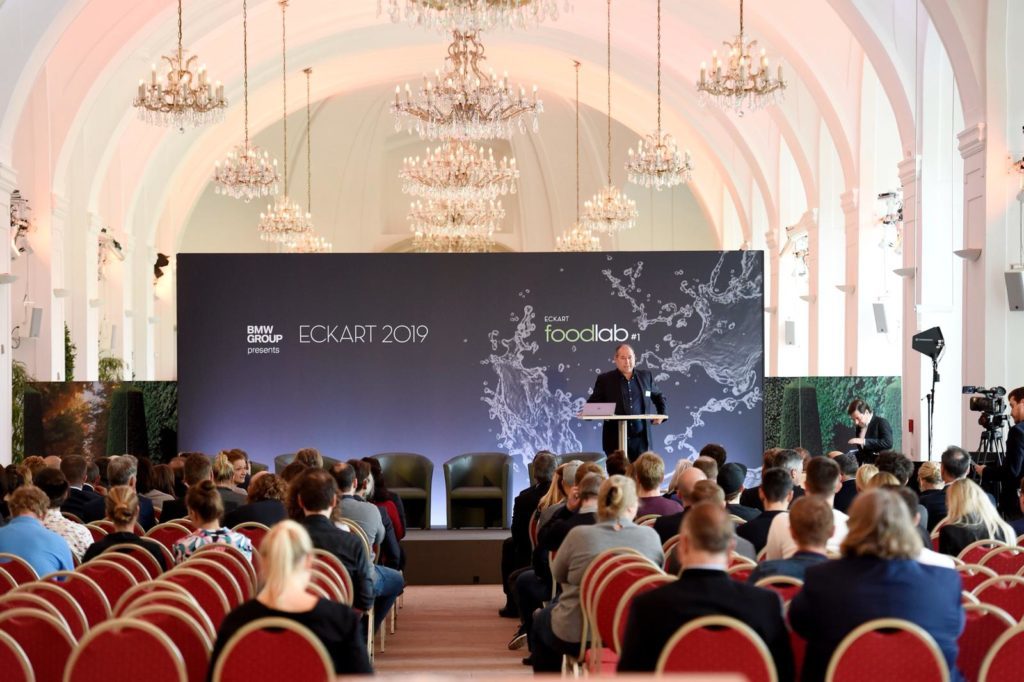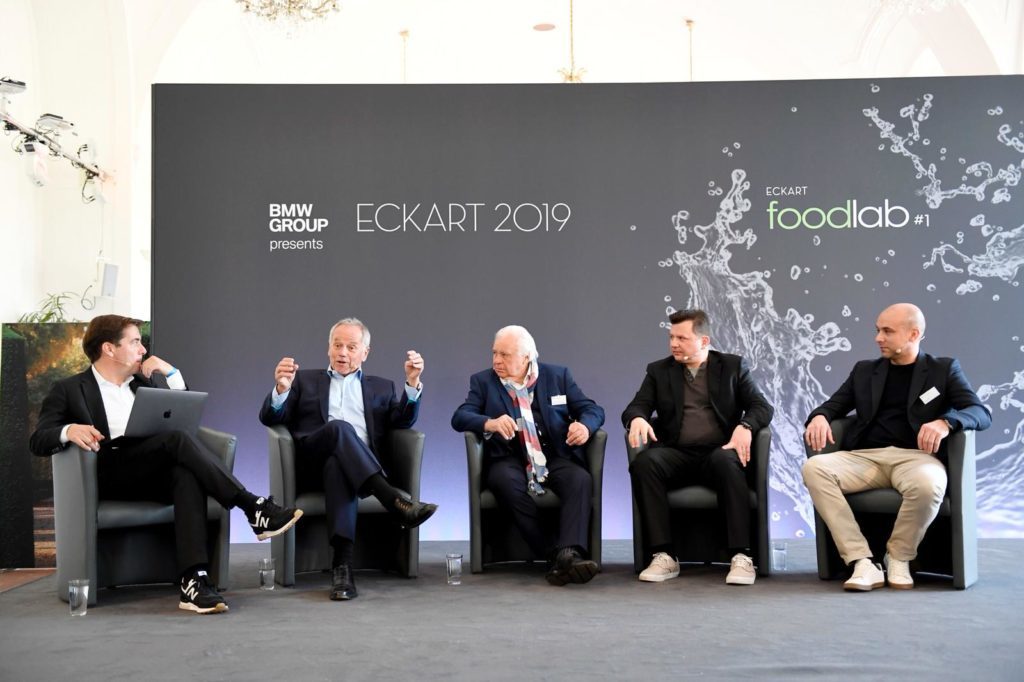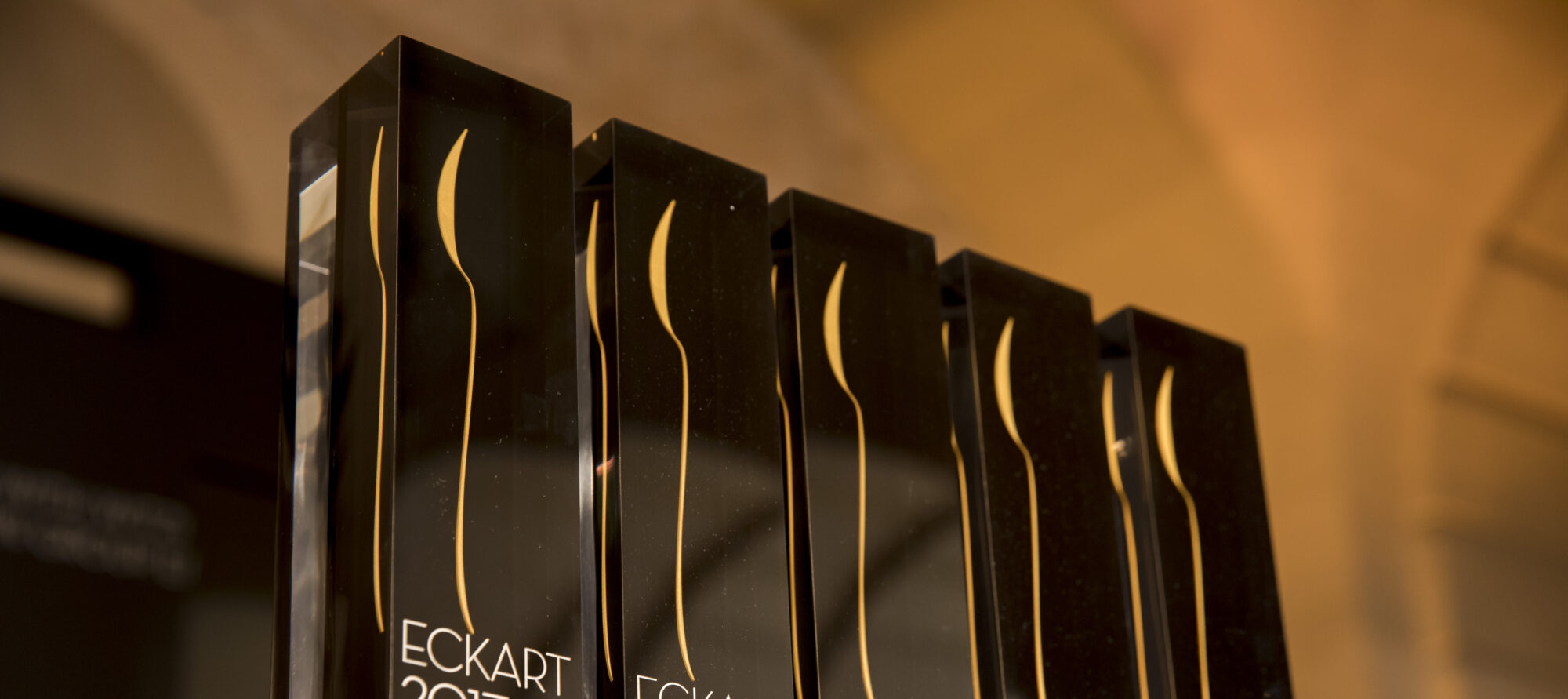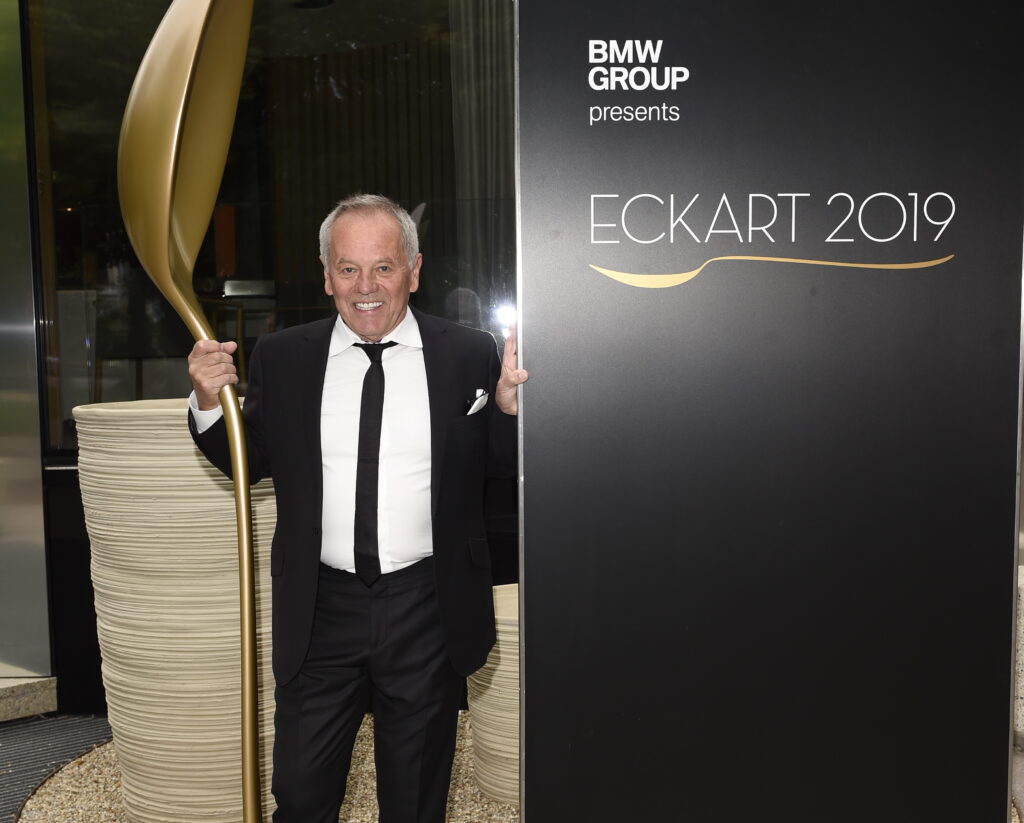The BMW Group and Eckart Witzigmann look back on the first successful culinary symposium in Vienna with over 350 participants

Munich/Vienna. “What is the significance of good, responsibly-prepared food?” On Monday in the Schönbrunn Orangery in Vienna, top-class representatives of the
gastronomy industry discussed the varied aspects of this question during several panels. Participants of the first ECKART culinary symposium then exchanged their knowledge of the producers’ market and put this knowledge into practice with selected products from all across Austria and the international Alpine region.
In his opening speech at the plenum of the Schönbrunn Orangery, Eckart Witzigmann said: “We must find appropriate answers to the questions of our time.” Wolfgang Puck and Franck Giovannini, winners of this year’s ECKART, who were honoured the previous evening, discussed the great cuisine of today with Eckart Witzigmann. “We need the avant-garde to move things forward,” was the conclusion of the high-calibre panel.

“The product is the star.” Under this motto several workshops informed the audience about unique products from the Alpine region – such as the citrus variety that has been cultivated for centuries in the Schönbrunn Orangery, types of grains that are 24 million years old, a wide range of cheeses from the Alpine region and honey vintages from the last 30 years. Maximilian Schöberl, Head of Corporate and Governmental Affairs and Chief Representative of BMW AG, commented on the opening of the producers’ market: “True to our motto ‘The product is the star’, we invited food producers from all across the region. High quality, no long transport routes and sustainable production. That’s how I imagine the perfect products.”
In the final discussion of the ECKART culinary symposium #1, prominent figures presented their ideas on what the kitchen of the future will look like. Rainer Nowak, Editor-in-Chief of Die Presse, drew the following conclusion: “The kitchen of the future should be more educational, healthier, more regional and more feminine. Anna Haumer, top chef from Vienna, sees a concrete task for the upscale gastronomy industry of the future: “The kitchen has an educational task. Cooking with children is important so that they know how and which ingredients are used to prepare what is on the table. Heinz Reitbauer from Steirereck presented his vision of star cuisine: “It is important to create your own profile. We want to enchant guests and tell stories. We have an important part to play in the cultural landscape.”
The topic of communal dining was also examined in detail. Nowadays, large kitchens have to strike a balance between the obligation to provide and responsible nutrition, according to the tenor of the discussion. “Good company catering is an image factor,” said Maximilian Schöberl. “We offer our employees the same high standards all over the world. We focus on a regional approach and open kitchens. And we want to use our information campaigns to raise employees’ awareness of good food and to also share this knowledge with their families.”
Alois Adlberger, head of BMW Group Food Service Steyr, adds: “Measured by sales, the BMW Group is one of the ten largest companies in Austria and has an annual purchasing volume of 1.8 billion euros from domestic suppliers. Our gastronomy at the Steyr plant makes an important contribution to this. We already procure more than 80% of our food from the region around the plant. Quality and freshness are of course directly related to taste. True to the title of the discussion “Class versus mass”, Adlberger adds: “Our focus is on enjoyment. That’s what we learn from top gastronomy.”



